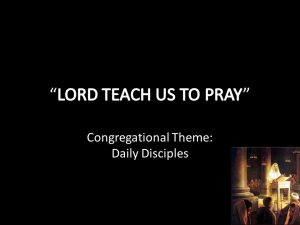
Shownotes
Wisdom-Trek / Creating a Legacy
Welcome to Day 1206 of our Wisdom-Trek, and thank you for joining me.
I am Guthrie Chamberlain, Your Guide to Wisdom
Disciples Fellowship and Pray – Worldview Wednesday

Wisdom – the final frontier to true knowledge. Welcome to Wisdom-Trek where our mission is to create a legacy of wisdom, to seek out discernment and insights, and to boldly grow where few have chosen to grow before.
Hello, my friend, I am Guthrie Chamberlain, your captain on our journey to increase wisdom and create a living legacy. Thank you for joining us today as we explore wisdom on our 2nd millennium of podcasts. This is Day 1206 of our trek, and it is Worldview Wednesday. Creating a Biblical worldview is important to have a proper perspective on today’s current events.
To establish a Biblical worldview, you must also have a proper understanding of God and His Word. On our Worldview Wednesday episodes we are in a series in which we are covering another detailed review of a book from one of today’s most prominent Hebrew Scholars Dr. Micheal S. Heiser. We are taking a deep dive and will share Dr. Heiser’s insights into the question, which is also the title of his book “What Does God Want?”
Disciples Fellowship and Pray

Last week we took a broad view of how disciples take care of each other. For the next several weeks, we will drill down and explore what the specific responsibilities are as a disciple.
The first responsibility is disciples fellowship.

“Fellowship” is a New Testament word that describes the activity of the believing community. Taking care of each other is part of Biblical fellowship, because when believers meet together, needs can be discerned and met. That said, we need a short discussion of fellowship to talk about other things disciples do.
Many Christians today equate “fellowship” with having fun together. For sure, doing fun things together strengthens relationships. Enjoying the company of people builds bonds. But that really isn’t biblical fellowship in the sense of becoming disciples.
The basic difference between doing fun things together and biblical fellowship is that fellowship isn’t just about spending time together. It’s much more intentional.
The goal of fellowship is ultimately “becoming one mind” around Jesus so that we can “have his mind in us.” In other words, the goal of fellowship is discipleship. A couple of verses from Philippians capture the idea:
Philippians 1:27 – Above all, you must live as citizens of heaven, conducting yourselves in a manner worthy of the Good News about Christ. Then, whether I come and see you again or only hear about you, I will know that you are standing together with one spirit and one purpose, fighting together for the faith, which is the Good News.
Philippians 2:1-5 – Is there any encouragement from belonging to Christ? Any comfort from his love? Any fellowship together in the Spirit? Are your hearts tender and compassionate? Then make me truly happy by agreeing wholeheartedly with each other, loving one another, and working together with one mind and purpose. Don’t be selfish; don’t try to impress others. Be humble, thinking of others as better than yourselves. Don’t look out only for your own interests, but take an interest in others, too.You must have the same attitude that Christ Jesus had.
What does it mean to have the mind of Christ and then to be of one mind as a community of believers? Does it mean everyone believes the same things down to the last detail? No. The Bible speaks of unity, not uniformity. A better way to understand “one mind and purpose” is that every member of the community is pursuing the same goal: to be like Jesus. The goal is harmony, not unanimity, in pursuing Christ-likeness and living in community together as believers.
Early believing communities engaged in a number of activities to build toward this goal. They prayed, fasted, worshipped, and studied the Scriptures. Since all of those activities are things disciples do individually as well as together, we will explore each one separately as we continue.
The next responsibility is that disciples pray.
In simplest terms, prayer is talking to God. But that needs some thought. Doesn’t God already know what we’re thinking? He does. So why pray?
Prayer isn’t for informing God. Prayer is a way we can show God (and others) that we depend on God. It is a way to express that we want God to act, that we aren’t relying on ourselves, or that we cannot find a solution ourselves. Prayer fosters our own sense of dependence on, and security in, God alone. In that sense, prayer is worship. The same is true for prayer in groups.

In Luke 11:1 the disciples, referring to John the Baptist and his followers, asked Jesus how to pray. Here is the verse, “Once Jesus was in a certain place praying. As he finished, one of his disciples came to him and said, ‘Lord, teach us to pray, just as John taught his disciples.'” Jesus’ response is the now-famous “Lord’s Prayer” (Luke 11:2-4; and Matt 6:9-15). It is important to note that Jesus didn’t tell the disciples what words to pray in the Lord’s Prayer. Rather, he told them to pray “like this” (Matt 9:9). He was giving them a model. We don’t need to use formulas or special words to talk to God. Just talk to God. Also, prayer should never be done for show (Luke 18:9-14).
Jesus’ response is the now-famous “Lord’s Prayer” (Luke 11:2-4; and Matt 6:9-15). It is important to note that Jesus didn’t tell the disciples what words to pray in the Lord’s Prayer. Rather, he told them to pray “like this” (Matt 9:9). He was giving them a model. We don’t need to use formulas or special words to talk to God. Just talk to God. Also, prayer should never be done for show (Luke 18:9-14).
There’s nothing in the Lord’s Prayer that God isn’t already aware of. Again, prayer isn’t about filling in gaps in God’s knowledge. Rather, the Lord’s Prayer is laced with things like worship and honor of God (“may your name be kept holy”), obedience to God’s will (“your will be done”), forgiveness (“forgive us our sins as we forgive those who sin against us”), and requests to be delivered from temptation and evil (“lead us not into temptation, and deliver us from evil”). Prayer is something that is designed to align our hearts with God’s lordship of our lives and build an attitude of dependence on him.
The Bible is filled with prayers, both individual and corporate. If you read them you learn that prayer is also a means by which we can pour out our feelings to God—anger, grief, love, or any other emotion. God isn’t learning anything when we do that. We learn to submit to him, believing he is good and knows best, and asking God for help. Jesus said God would indeed answer in the wider context of his wise will. In other words, God’s answers may not always be what we want, but God knows everything else that’s going on in the course of all human experience and behavior, and is working his greater plan. God may also answer in an unexpected way.
The prayers of the Bible are also not self-focused. Most of their content is aimed at blessing others or asking God’s mercy upon others. Paul’s letters habitually include prayers for those to whom he’s writing. Prayer is not always, or even mostly, about expressing our own needs and wants.
Jesus prayed frequently. He followed his own teaching that prayer should be persistent (Colossians 4:2-6, Luke 18:1-8). Jesus didn’t get every prayer answered, which was acceptable to him, since he was more concerned that God’s will would be done (Matthew [26:36]-46). This is an important reminder about prayer. Jesus taught that God would answer when we pray (Luke 11:9-13), but we cannot assume that God would answer the way we want if we are disobedient to him or not in concert with his own will (James 4:3; 1 John [3:22]; [5:14]).
That will conclude our lesson for this week from Dr. Heiser’s book “What Does God Want?” Next Worldview Wednesday, we will discover two additional responsibilities for disciples which are “Disciples Fasting and Worshiping.” I believe you will find each Worldview Wednesday an interesting topic to consider as we build our Biblical worldview.
Tomorrow we will continue with our 3-minute humor nugget that will provide you with a bit of cheer and help you to lighten up and live a rich and satisfying life. So encourage your friends and family to join us and then come along with us tomorrow for another day of our Wisdom-Trek, Creating a Legacy.

If you would like to listen to any of our past 1205 treks or read the Wisdom Journal, they are available at Wisdom-Trek.com. I encourage you to subscribe to Wisdom-Trek on your favorite podcast player so that each day’s trek will be downloaded automatically.
Thank you for allowing me to be your guide, mentor, and most of all, your friend as I serve you through the Wisdom-Trek podcast and journal.
As we take this trek together, let us always:
- Live Abundantly (Fully)
- Love Unconditionally
- Listen Intentionally
- Learn Continuously
- Lend to others Generously
- Lead with Integrity
- Leave a Living Legacy Each Day
I am Guthrie Chamberlain reminding you to Keep Moving Forward, Enjoy Your Journey, and Create a Great Day Everyday! See you tomorrow!